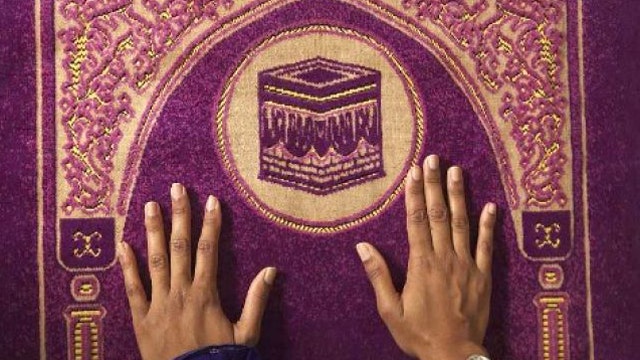Are Islam's top leaders doing enough to stop radicals?
Al Fadi on the renewed call to stop extremism in the Middle East
Why young men and some young women join the brutal ranks of Isis, is something that's hard for Westerners to understand. But native Saudi Al Fadi, has an interesting explanation. It's because they want to.
Fadi, founder of the Center for Islamic Research and Awareness told FoxNews.com’s “Spirited Debate’ it’s a complication situation. He left the Muslim faith fifteen years ago and he says of himself, "If I were a Muslim today, I would have been a member of ISIS."
Fadi grew up in the Madrassas or Islamic schools, which thousands of Muslims attend today.
There, he says many were taught an ideology that ISIS members claim is the true form of Islam. "I was [a] very indoctrinated Muslim," he says. "All of my teachings... at the Madrassas, in the Mosque were basically similar to those kinds of ideology ... meaning that you always aspire to have a caliphate. You have one authority, one political and religious authority."
There is a growing call for reform. Sheikh Ahmed al-Tayeb of Cairo's Al-Azhar University believes now is the time to reform Islamic teachings in schools. Al-Tayeb says the culprit behind radical Islam is a misreading of the Koran that has led to erroneous, interpretations of Islam.
“It's a noble.... gesture on his part to try to relook again at the interpretation of the Koran. But the problem is, you have fourteen hundred years... of history that backs up the interpretation we're seeing basically by groups like ISIS, Boko Haram, Al Shaba and Al Qaeda," said Fadi.
He added, “in order for Sheikh Al-Tayeb is proposing for that to happen, you have to look at all of these teachings that are found in the Koran, which is considered by Muslims to be the word of God verbatim, and also look at the teaching of the prophet of Islam. In other words he's suggesting that Muslims need to ignore both these sources and come up with their own way of interpreting it."
Moderates like Al-Tayeb and many Muslims living in Western cultures contend that the violent verses in the Koran must be understood in their historical context. They were meant for a specific time, place and purpose. He says it's much like the violence found in the Bible's Old Testament, like in the book of Joshua, as it chronicles Israel's campaign to take the land of Canaan which God promises them.
But Fadi contends, "the problem with that interpretation [for the Koran], is that there isn't anything in these particular passages that indicates first it's a narrative," and "second, it's very clear that it's an open ended command, an imperative."
There is growing concern that young Muslims are attracted to extremists groups because of their faith, not in spite of it. "They are drawn by this thirst for Heaven. It's not a lack of assurances or their lack of security. It's their hunger to please God is what drive this," he said.
Couple that with a belief that violence is not only justified but required by the holy book in order to carry out Allah's will, and it's a perfect recipe for radical Islam.
Fadi believes though that if Muslim moderates become a greater voice and influence, Islam's next generation could have a different understanding of their faith.
"If the Saudi authority and the Egyptian religious authority could convince the masses of Islam to begin to look at the Koran with a different vernacular, at the Hadith and the teaching of the prophet... it is possible that we'll see this change over time, over probably an entire generation."

